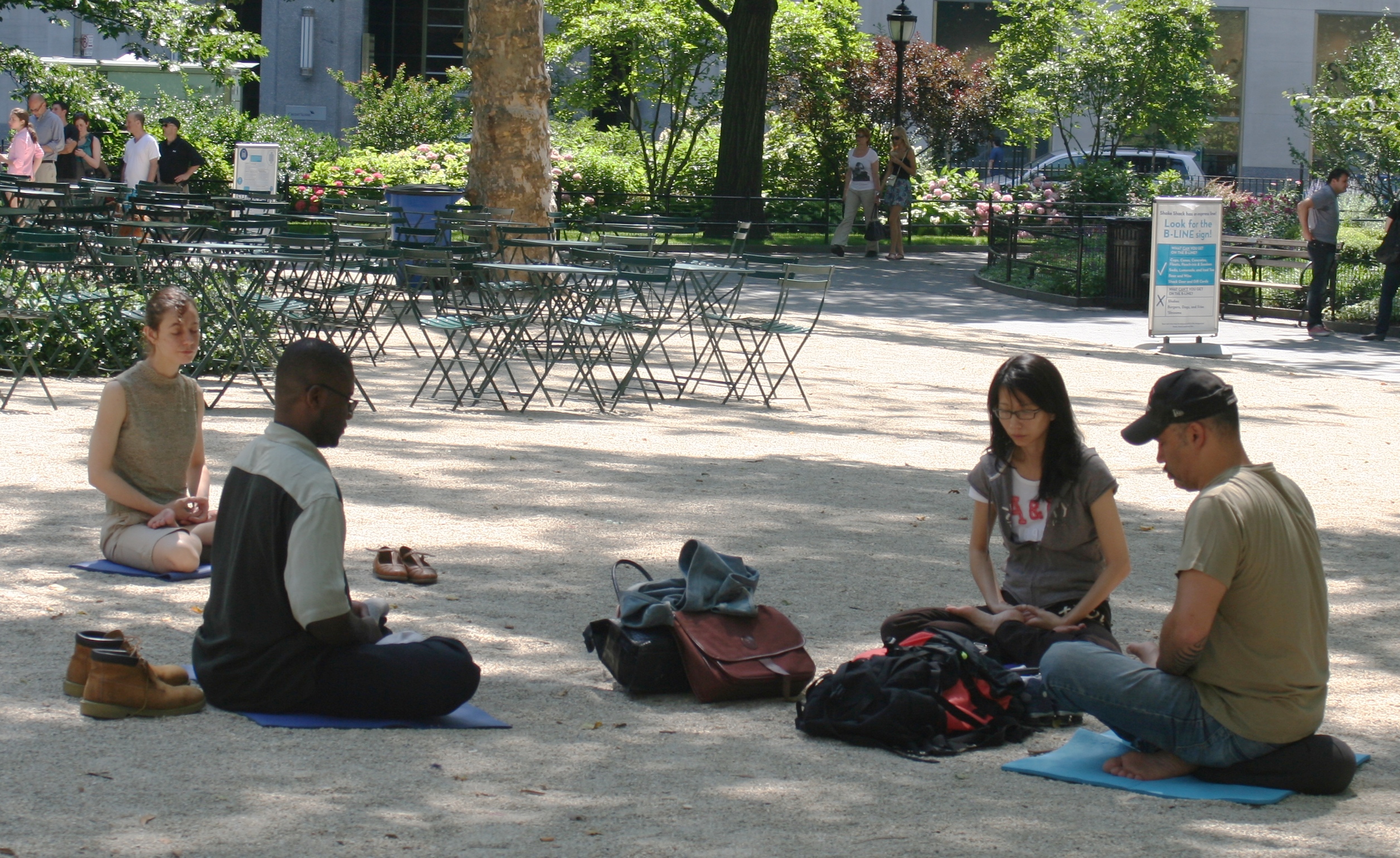By Nadine Moedt (The Cascade) – Email
Print Edition: November 26, 2014
The approaching exam season has many students turning to the old tropes of de-stressing, whether healthy or not. Alongside the stress of daily life, end- of-semester papers and spectres of looming exams haunt our free time; we fall to carbs, cheap booze, TV escapism, and SUS-hosted puppy rooms to alleviate the tension.
A series of workshops on the techniques of mindfulness, put on by UFV’s counselling department, offer insight on techniques to relax the mind and body as an alternative to more destructive means to reduce anxiety. I found myself attending in order to find a lower-calorie way to manage my end of semester stress, which is usually based in dark chocolate.
The workshop had participants experience mindfulness in a safe and instructive environment, run by Eileen Burkholder of UFV’s counselling department. We were first asked to assume a position with ears aligning with shoulders and shoulders aligned with our hips. Our necks were tilted down and our eyes were closed to shut out distracting stimuli. We were told to be a “sack of potatoes” in our seats: solidly resting on our chairs, our abdomens soft.
“This is not like a class,” we were reminded. Remembering is not the goal; rather simply “experiencing what [we] are in the moment.”
Mindfulness, we were told, is the “training of our minds to be in the moment,” says Burkholder. It is becoming aware of one’s mental and physical state by tracking and releasing thoughts in a meditative sort of approach; the exercise involves resting one’s attention on a specific focus, recognizing when your attention has drifted and returning it to your focus.
A study in the UK found that mindfulness based therapy is as effective as taking medications in stress and anxiety reduction, Burkholder said.
We were guided through these steps via breathing exercises. Our attention was brought to Burkholder’s voice, who told us to rest our focus on where our bodies touched the chair, and where our feet touched the ground. When thoughts or anxieties passed through our minds we were to envision them as clouds: take hold of them, acknowledge their presence, and then let them drift past, bringing our awareness back to the guiding voice of Burkholder. Burkholder directed our attention to specific areas of our bodies, channeling our breath through our lungs to our abdomen, legs, toes, into our very joints and bones.
“You don’t have to like or want the experience,” Burkholder said, “just feel whatever you are feeling.”
This exercise, called a “body scan” according to Burkholder, has been strongly correlated to increased job performance, productivity, and attention span, and is linked to empathy and decision-making processes. A study in the UK found that mindfulness-based therapy is as effective as taking medications in stress and anxiety reduction, Burkholder said.
The group later discussed their experiences with practicing mindfulness. The discussion focused on the experience’s ability to make individuals aware of their already present state of mind. Burkholder spoke on the ABCs of mindfulness. A is an event; her example was seeing a friend in the hall and saying hello with no response. C is our reaction, our interpretation of whether we are being ignored or the person didn’t see our greeting. Our reaction depends very much on B: mindfulness training. If we can acknowledge how we are feeling, if we are aware that we are in a sad frame of mind, we might work on keeping our interpretation of the event as positive as possible. Mindfulness is based on being aware of our mood and on how this effects our interpretation and reality.
Participants were given mindfulness resources, exercises to use at home, and homework for the next session, which includes mindful eating.
The workshop series will continue through the exam period, with sessions being held on Monday December 1 and 8, from 12:00 to 12:50 in B121. For more information and to register for the next session, contact Eileen Burkholder at eileen.burkholder@ufv.ca.


